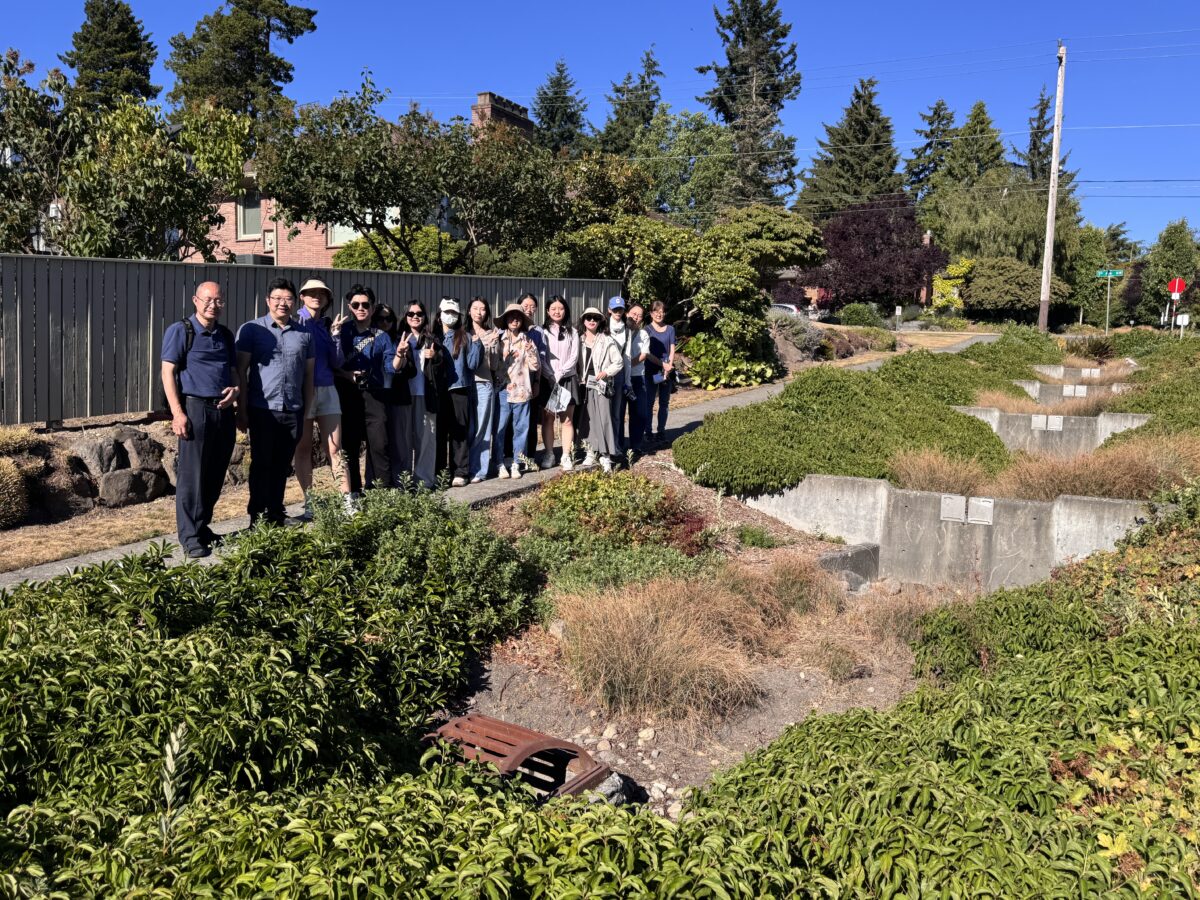
Chang Liu, a civil engineer at Osborn, had the opportunity to host both Professor She (a UW alumnus and former employee at Seattle Public Utilities), and Professor Li from Peking University’s School of Architecture and Landscape Architecture, along with 12 of their graduate students for a site visit at Seattle Public Utilities’ (SPU) Venema Natural Drainage System project that Osborn designed in Seattle. Chang and She first met back in 2019 during a PhD forum in China, and in 2020 Chang invited him to visit Osborn’s Bellevue office to talk with our staff, and they have kept in touch since then.
The group is currently on an academic tour focused on sustainable design and water infrastructure, and reached out to Osborn, who they recognized as a regional leader in low impact development (LID) design. Instead of a traditional office tour, they felt that a visit to one of our constructed projects would provide a more interactive learning experience. Venema was one of the very first projects Chang worked on when he joined Osborn in 2015. Masako Lo, a civil engineer at Osborn who also worked on the project while at SPU, joined Chang at the site to help present and share her design insights.
As one of Seattle’s earliest projects to combine bioretention with underground injection control (UIC) wells for both water quality treatment and flow reduction, Venema Natural Drainage System manages runoff from an 80-acre urban basin, collecting residential and roadway stormwater and channeling it into a series of 24 bioretention cells within the Seattle public right-of-way. Before this system was constructed, polluted runoff drained into Venema Creek during storm events entering the ecologically sensitive, fish-bearing Pipers Creek.
In partnership with Seattle Public Utilities, Osborn developed a sustainable solution that restores and protects stream habitat by replicating natural hydrology. This innovative design integrates bioretention cells and UIC wells to filter and infiltrate stormwater—reducing erosion and enhancing water quality downstream. It has been operating for nearly 10 years with almost no maintenance and has won awards from both American Society of Civil Engineers (ASCE) and the American Council of Engineering Companies (ACEC).
Chang said that visiting the site brought back a lot of good memories from those days:
“It’s pretty amazing to see not only how the project has matured and performed over the years, but also how much our company has grown since then. The students’ curiosity and thoughtful questions were a great reminder why the work we do matters—not just to solve tough design challenges, but also shaping the future of sustainable design and hopefully influencing the next generation of engineers and designers along the way as well.”







